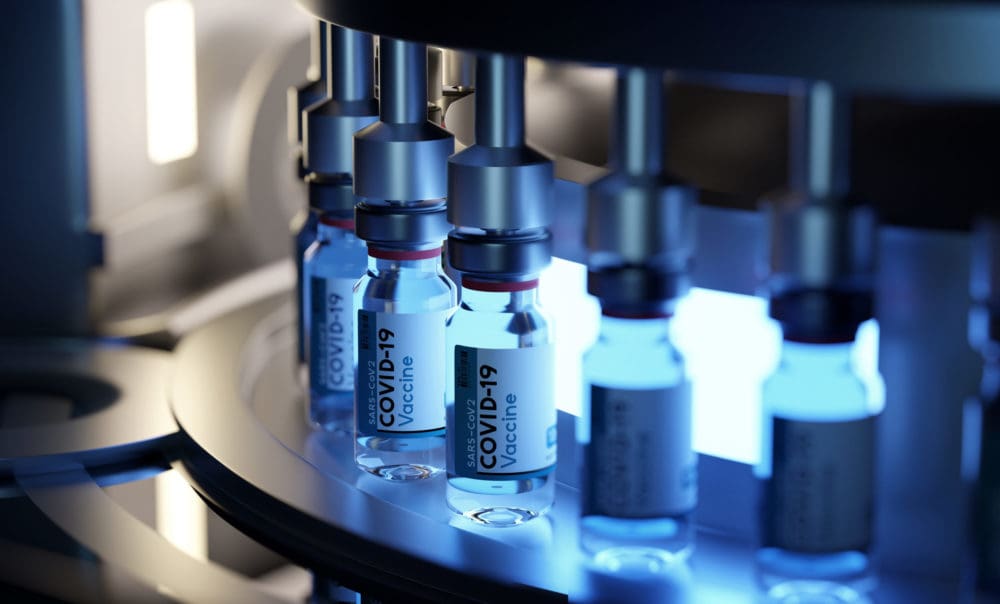Global Covid-19 vaccines equity of access is a ‘shared goal’ as production surges, says industry


Global equity of access to Covid-19 vaccines should be a shared goal, according to the research-based biopharmaceutical industry, with production set to reach 16.3 billion doses by the end of June.
In a joint statement at the Oireachtas Committee on Enterprise, Trade and Employment, IPHA and BPCI, the industry’s representative organisations, said waiving intellectual property rights will not accelerate global Covid-19 vaccines access.
“Production is not the problem. There are already more than enough vaccines for the world. The problem is they are not getting to the people who most need them fast enough,” said Oliver O’Connor, Chief Executive of the Irish Pharmaceutical Healthcare Association.
“While Ireland has a world-class Covid-19 vaccination rate, much of the world remains unprotected. That must change. We want as many people as possible vaccinated for Covid-19 as fast as possible, no matter where they live. The response to this pandemic, to future ones and to all other diseases depends on stable conditions for the discovery, development and production of vaccines and treatments. Speed of delivery and global equity of access to Covid-19 vaccines and treatments, and the protection of intellectual property rights, are not mutually exclusive. They are complementary.
“To thrive, innovation depends on intellectual property protection. It is the certainty that shields the risky business of investing in research and development. Most of it fails. The global patents system is the basis for innovation. The proposed TRIPS waiver is a serious risk to the global patents system,” he Mr O’Connor.
By the end of June, 16.3 billion doses of Covid-19 vaccines will have been produced since the start of the pandemic. At the end of January, there were 12 billion Covid-19 vaccine doses produced, including 3.4 billion mRNA vaccines. Of the 12 billion, 10 billion were administered. The speed of Covid-19 vaccines production is outpacing their administration.
“The cause of global Covid-19 vaccine inequity is the capacity of some countries, mostly developing nations, to absorb, distribute and administer the doses they get. In some of these countries, Covid-19 vaccine hesitancy is high. There are reports of shortages of syringes and medical equipment, as well as the destruction of significant quantities of doses of expired vaccines. This is not to blame countries for shortcomings. Rather, it is a signal to all of us to do more to help.
“By the end of last month, Covax, the vaccine distribution programme backed by the World Health Organisation, had delivered 1.43 billion Covid-19 vaccine doses to 145 countries. Africa has received around 672 million doses. In January, 96 million doses were shipped to Africa – more than double the amount shipped six months before that. But Covax is now only shipping Covid-19 vaccines to countries on demand to ensure the right volume at the right time. The World Health Organisation has reported that up to 3.5 million Covid-19 vaccine doses have been destroyed.
“The Africa Centres for Disease Control and Prevention has asked that all Covid-19 vaccine donations be paused until later this year because hesitancy and logistical hurdles are hampering administration. Our industry has met the challenge of global production by investing in existing sites and in voluntarily entering over 370 licensing agreements with manufacturing partners with the skills and technology needed to produce Covid-19 vaccines to the highest regulatory standards. Further production capacity expansions are planned, especially in Africa. For Covid-19 treatments, over 150 voluntary partnerships are in play,” said Mr O’Connor.
The industry has urged multilateral solutions to strengthen healthcare system capacity for Covid-19 vaccine administration and to empathetically tackle vaccine hesitancy. There are six steps towards goal Covid-19 vaccines equity of access:
- Continue to surge production of Covid-19 vaccines and treatments through in-company investments in sites and voluntary onboarding of suitable manufacturing partners;
- Eliminate trade barriers so that the free flow of vaccines, ingredients and medical goods and supplies across borders is facilitated in the global supply chain;
- Increase dose-sharing, with developed countries giving developing ones much more of their surplus vaccine doses faster;
- Support country readiness, building the capacity of healthcare systems in developing countries to efficiently absorb, distribute and administer vaccine doses;
- Combat vaccine hesitancy through education and health awareness programmes, empathetic and tailored community outreach, and influencer activations in mainstream media and on social media platforms; and,
- Drive further innovation in vaccines and treatments, and work with healthcare systems on planning, to guard against variants of concern and future pandemics.
“We cannot afford to undermine innovation. Scientists expect more zoonotic contagion in the future, making intellectual property rights a key part of the public health response. We still have to find answers to the diseases we know about. Globally, there are thousands of medicines in development. Among them are cell and gene therapies to treat, prevent and, potentially, cure some diseases like cancer. This is the dividend of innovation.
“Covid-19 has been harrowing, causing sickness and death for so many people. According to the latest estimates, almost 15 million people have died globally – 13% more deaths than normally expected over two years. But without vaccines and, later treatments, the death toll, and lost economic output, caused by Covid-19 would have been so much worse.
“This is our industry’s contribution to the world – saving lives, guarding against severe illness, and maintaining economic life. We are proud of that contribution, made possible by science. Let us protect it for all our health and for economic progress,” said Mr O’Connor.
ENDS


